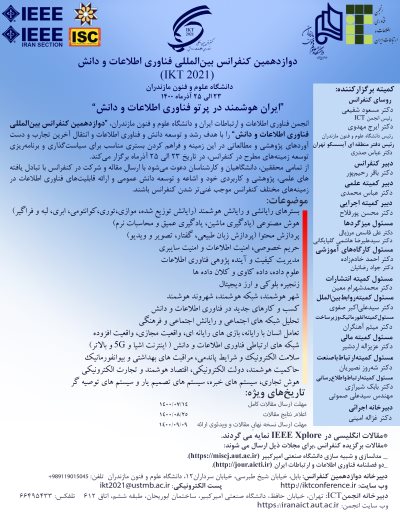0% Complete

نویسندگان :
کلمات کلیدی :
چکیده :
لیست مقالات بایگانی شده
Narges Honarjoo - Ali Abdari - Dr Azadeh Mansouri
Alireza M. Hosseini - Dr Abbas Mohammadi
Zeinab Borhanifard - Hossein Basafa - Seyedeh Zahra Razavi - Heshaam Faili
زهرا رشیدی - دکتر وصال حکمی - حانیه سلمانطاهری زهرا رشیدی - وصال حکمی - حانیه سلمانطاهری -
Mohammad Matin Hosni - Ali Kheiri - Esmaeil Najafi
علیرضا کبیری فرد - علی ولی زاده - مهدی مجیدپور
امین رضا انصاری - احد قائمی - سید مهدی کوچک کوثری
صبا عارفنیا - مهدی هاشمزاده - امین گلزاری اسکوئی
ریحانه حسن رحیمی - فهیمه یزدان پناه
Skokufe Motaharipour - Behrouz Shahgholi Ghahfarokhi - Saeid Afshari






